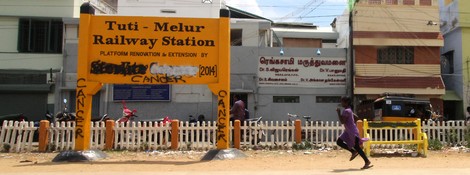Your podcast discovery platform
Curious minds select the most fascinating podcasts from around the world. Discover hand-piqd audio recommendations on your favorite topics.

piqer for: Climate and Environment Globalization and politics
Raksha Kumar is a multimedia journalist focusing on human rights, politics and social injustices. Since 2011, she has reported for The New York Times, BBC, Guardian, TIME, South China Morning Post, Foreign Policy, Scroll.in and The Hindu.
In March 2018, she was awarded the National Foundation for India Media Award for her reportage on land rights in India. In 2017, she was shortlisted for Kurt Schork Memorial Awards in International Journalism. For her work on land conflicts in India, she was awarded the Chameli Devi Award for Outstanding Media Personality in 2016.
As a reporter, her focus areas are land and forest rights of the most vulnerable communities. However, since these issues cannot be looked at in isolation, Raksha found herself increasingly reporting on armed conflict around resource extraction in places like Chhattisgarh and Kashmir.
In 2015, she wrote, shot and directed a documentary film on Rationalists in Contemporary India. It was aired by India's public broadcaster, Doordarshan. The film has been screened in 29 locations across the country until now.
The same year, Raksha was selected as a Chevening Fellow by the University of Westminster to research on Hindu Right in the UK. This helped Raksha build on her post graduate dissertation which was on Hindu Fundamentalists in India.
With a Fulbright Scholarship for Leadership Development, she went to the Columbia University in New York City to pursue a Masters in Science. As a student, she was offered the Scripps Howard Fellowship to report from Israel and the West Bank. Since 2011, Raksha has reported from 11 countries across the world.
Raksha worked as an editor at NDTV, leading English news channel in India. She was the editorial head of a two-hour prime time news show, where she lead a team of about 20 junior journalists.
A graduate of Lady Shri Ram College in New Delhi, Raksha was a dedicated student and a passionate public speaker.
13 People Killed While Protesting Pollution
Hundreds of villagers were protesting an expansion of a copper production plant in the Southern Indian state of Tamil Nadu. The expansion would have made Sterlite Copper among the world’s largest copper smelters.
However, the company was causing air, water and soil pollution in Thoothukudi town, where it existed.
Ever since the Sterlite Copper smelter became operational in 1996, there have been protests against the company’s excesses and environmental violations. Located at the edge of Thoothukudi town on the Madurai bypass road, the company had a copper smelting capacity of 40,000 tonnes per annum in the 1990s.
If the expansion had gone through, the company would have a copper smelting capacity of 900,000 tonnes per annum.
When people began protesting the expansion in Thoothukudi, police fired at the unarmed crowds. Thirteen people were killed.
“I had just gone to see what was happening inside when they started shooting. There was no warning or anything, I’m just happy the bullet went to my leg and not somewhere else.” — a protester.
Questions about human rights and the right to protest have been raised across the country. Several people have run campaigns in support of the villagers who were protesting.
